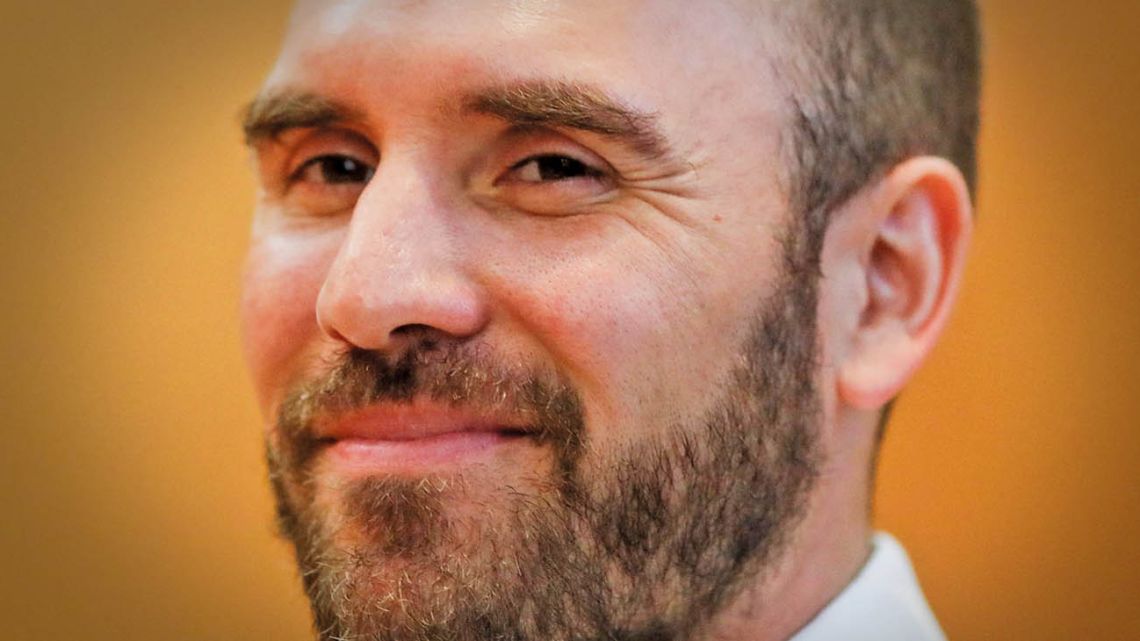
Argentina’s government will seek a deal with the International Monetary Fund (IMF) over a new financing programme before sending an economic plan to Congress detailing “certainties,” according to new reports.
Speaking to a local radio station on Friday, Economy Minister Martín Guzmán said that the government wanted to reach “understandings” with the IMF before seeking bipartisan support for any new deal, likely to be an Extended Fund Facility (EFF) agreement lasting beyond the current administration’s term in office.
Argentina owes the IMF more than US$44 billion from the record US$57-billion credit-line agreed in 2018 by the previous government led by former president Mauricio Macri.
The government will present a proposal to Congress, Guzmán said Friday, but only once an understanding is reached with the IMF staff. He did not detail what specific points are currently under discussion.
The minister said the Frente de Todos government is focused and wants to resolve this problem as soon as possible, hopefully this year, though he admitted it would not be easy.
Earlier on Friday, the Reuters news agency, citing an unnamed source with direct knowledge of the talks, reported that negotiations were underway and that the “intention is to have an agreement on an economic programme supported by IMF staff.”
“The intention of the entire governing coalition to finalise that this year,” the unnamed source, who has direct knowledge of the talks, told Reuters.
Accelerate
After more than a year of procrastination, Argentina’s negotiations with the IMF to reschedule upcoming payments are expected to accelerate after last week’s midterm elections, in which the ruling coalition lost in most of the country’s key electoral districts.
President Fernández wants to send an economic programme to Congress in the first week of December, according to reports, a necessary step for the country to reach an agreement with the Washington-based organisation as repayments loom and the government remains cut off from international debt markets.
Guzmán said Friday that he has no plans for a trip to Washington to meet with IMF officials and that talks are continuing remotely. IMF spokesman Gerry Rice said on Thursday that there is no date yet for formal face-to-face meetings.
During the interview, Guzmán said there would be no devaluation of the peso and that monthly and annual inflation is expected to cool in November.
The official said that Argentina’s economy will grow by more than nine percent this year and that the country is looking to implement targeted utility subsidies by “segments” in 2022.
He argued that cutting public spending will not help Argentina’s economic recovery.
Speaking in the wake of last Sunday’s midterm elections, Fernández said he would send a “multi-year economic programme for sustainable development” to Congress and called on the opposition to back any future accord.
“In this new stage we will deepen our efforts to reach a sustainable agreement with the IMF,” declared the Peronist leader.
He also backed his economy minister, saying he would remain in place.
The president said the plan would outline “the best understandings that our government has reached with IMF staff” without “renouncing the principles of economic growth and social inclusion.”
The president also sought to clarify that this “programme” has the support of the entire coalition: “This is a political decision that has the full backing of Frente de Todos. It has been the fruit of joint work with the Vice-President of the Nation [Cristina Fernández de Kirchner], the President of the Chamber of Deputies of the Nation [Sergio Massa] and my Cabinet of ministers,” he declared.
If the government does not manage to agree a new repayment schedule with the IMF, Argentina will have to repay US$19 billion in 2022 and as much again in 2023., under the terms of the deal agreed by Macri’s government three years ago.
– TIMES/NA/BLOOMBERG
What we know about the talks
Details of the talks between Argentina and the International Monetary Fund have been few and far between, though the government has toyed with the idea of sending a multi-year economic plan to Congress before, as early as 2020.
Now, the government is reviving the idea and some details are beginning to come to light:
Reach an agreement with the IMF spanning 10 years; Principal would start to be repaid in the second half of 2026 and then there would be quarterly payments afterwards until 2032.
Six-monthly reviews by the IMF would be encouraged.
Between 2022 and 2025, the government in office should commit to a path towards fiscal balance, which should be achieved in three years.
Argentina should commit to increasing Central Bank reserves and reducing the exchange rate gap.
– PERFIL [Reporting by Lorena Rodríguez]

